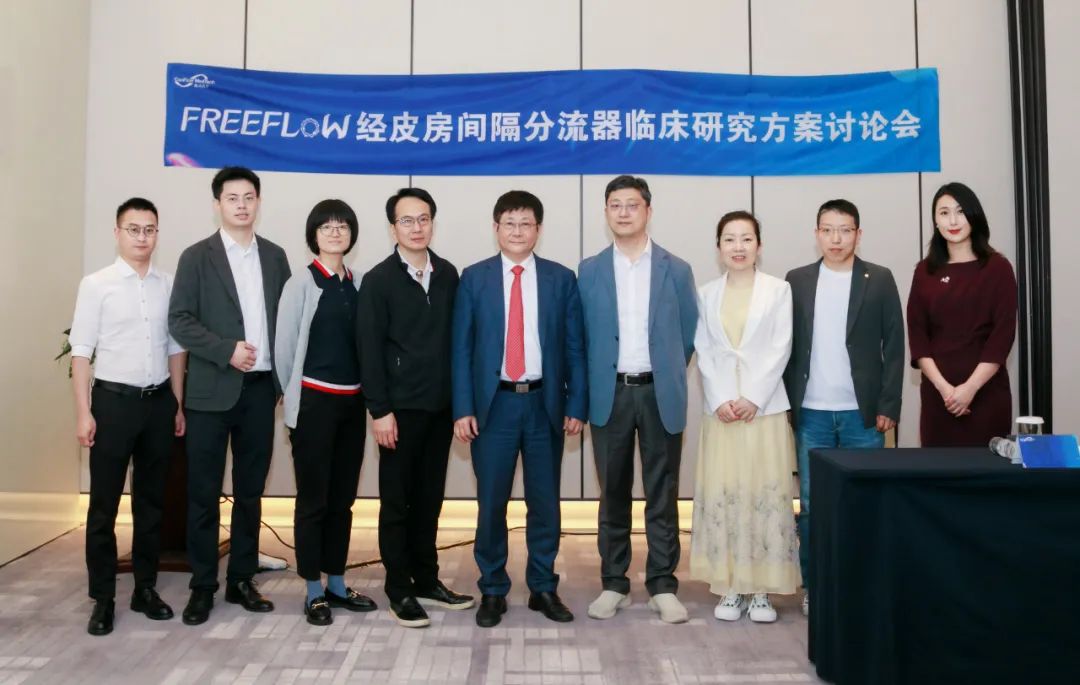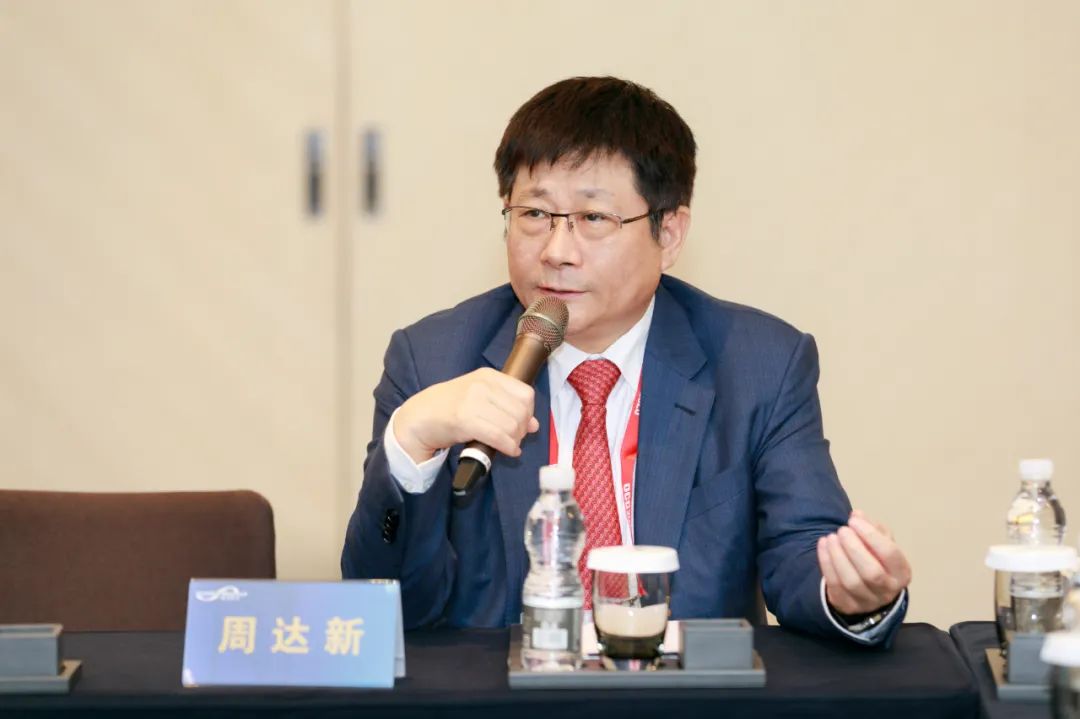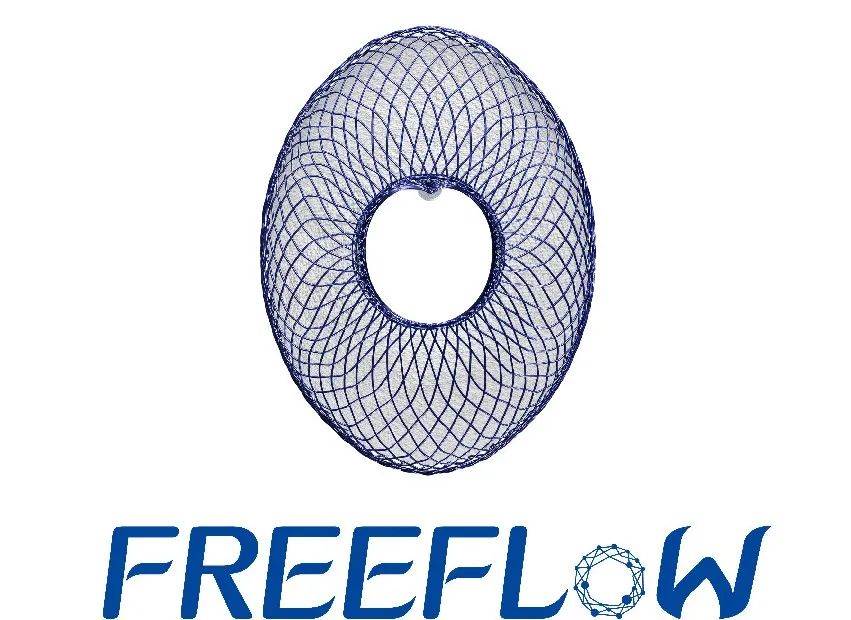On the afternoon of May 27, 2023, the 17th Oriental Cardiology Conference unfolded in full swing at the Shanghai World Expo Center, attracting a congregation of renowned experts,and fostering a robust academic ambiance. Within the JW Marriott, ConFlow MedTech successfully hosted the FreeFlow percutaneous atrial septal shunt clinical research plan discussion conference, coupled with the inaugural clinical investigator conference.
Seven distinguished researchers from prestigious research centers actively engaged in this seminar, either in person or online, marking the official commencement of the nationwide multicenter clinical trial for the FreeFlow percutaneous atrial septal shunt.Top of Form.

National Multicenter Clinical Trial for FreeFlow Officially has been initiated!
Ms. Chen Xiumin gave an opening speech

Ms. Chen Xiumin, General Manager of ConFlow MedTech, initiated the event with an impactful opening statement, expressing gratitude to research experts and institutions for their wholehearted participation and support. She provided an overview of ConFlow MedTech's developmental journey, research project, and clinical breakthroughs, while eagerly anticipating the seamless progression of the FreeFlow percutaneous atrial septal shunt clinical trial at research centers.
Speech by Director Zhou Daxin

Director Zhou Daxin shared insights into cutting-edge clinical research on the shunt and provided an update on exploratory research concerning the FreeFlow percutaneous atrial septal shunt. Clinical data underscored the significant impact of shunt implantation in enhancing the quality of life for patients with advanced heart failure. He lauded the safety and efficacy of the FreeFlow percutaneous atrial septal shunt.
ConFlow MedTech's clinical team offered an all-round introduction to the FreeFlow product, clinical progress, and trial protocol. During the discussion, attending experts engaged in a lively discourse centering on trial procedures, protocols, inclusion/exclusion criteria, and provided specific and sharp insights, establishing a solid groundwork for the future high-quality execution of national multicenter registered clinical trials.
The formal commencement of the FreeFlow percutaneous atrial septal shunt clinical research plan seminar marks a significant milestone in ConFlow MedTech's shunt project's progression. We sincerely anticipate a smooth journey in multicenter clinical research and hope that the product's safety and efficacy will gain further support through additional clinical data, benefiting more heart failure patients in the shortest possible time.
FreeFlow percutaneous atrial septal shunt
PAH is a complex clinical and pathophysiological syndrome deriving from diverse etiologies and distinct pathogenic mechanisms, resulting in elevated pulmonary vascular resistance and pulmonary arterial pressure. It represents a grave, progressive, irreversible, and ultimately fatal condition.
While in recent years, tremendous breakthroughs have been achieved in pharmacological and therapeutic approaches for various forms of PAH, a substantial cohort of patients continues to experience disease progression despite optimal drug regimens. This deterioration negatively impacts patients’ quality of life, increases hospital readmission rates, and escalates healthcare expenditures. The annual mortality for idiopathic pulmonary arterial hypertension (IPAH) stands at approximately 10%, with no known cure. Certain PAH subtypes, such as scleroderma-related PAH, exhibit even higher mortalities. For patients resistant to pharmacotherapy and deemed high-risk, emergency dual lung transplantation remains the sole recourse. Regrettably, most PAH patients are not candidates for this procedure, as only 3% of individuals with pulmonary arterial hypertension are eligible for lung transplantation. Furthermore, although the median post-transplant survival period is 6.7 years, PAH patients still face higher mortalitiescompared to those with other medical conditions.
At present, pulmonary arterial hypertension (PAH) treatment options include general measures, basic therapy, specific therapy , as well as balloon atrial septostomy (BAS) and lung transplantation. BAS involves creating a controlled right-to-left shunt through an atrial septal balloon to reduce right heart pressure and alleviate right heart failure. However, an excessively large shunt can lead to acute severe hypoxia and an increased risk of mortality. Conversely, a too-small shunt may result in rapid spontaneous healing in approximately 25% of atrial septal stoma patients, necessitating a repeat BAS procedure. Therefore, precise flow rate control to limit the right-to-left shunt is of great importance. The development of atrial septal shunts tailored for this purpose represents a burgeoning frontier in PAH treatment.
ConFlow MedTech's FreeFlow percutaneous atrial septal shunt represents a significant leap forward in product design and performance.
This project is spearheaded by Professor Ge Junbo at Zhongshan Hospital affiliated to Fudan University. Prior to this, an exploratory clinical trial was successfully completed at Zhongshan Hospital, where all subjects experienced no adverse events, achieving a 100% stable shunt rate post-surgery. Pulmonary arterial hypertension improved, and respondents exhibited significantly enhanced exercise tolerance compared to their pre-surgery states, validating the product's safety and effectiveness.
Product features:

- The world's first atrial septal shunt featuring a polymer membrane for accelerated endothelialization and secondary recycling;
- Distinguished by its innovative elliptical disc design, offering a more compact implant size;
- The state-of-the-art 8-10F delivery system boasts a unique bending angle for streamlined surgical procedures;
- The project has currently applied for 2 invention patents, 4 utility model patents (3 authorized), and 6 design patents (5 authorized).
-
September 17,2021Celebrating its one-year milestone, ConFlow MedTech successfully concluded its first-anniversary event, joined by supporters and partners.
-
July 24,2023Good News | ConFlow MedTech was awarded as "Specialized and Sophisticated SME" in Shanghai City
-
September 18,2023Thank you for being with us as we celebrate the third anniversary of ConFlow MedTech's establishment!
Pursue further excellence!





